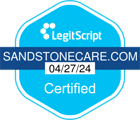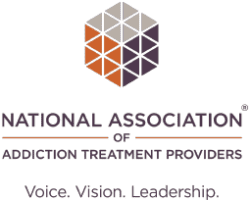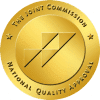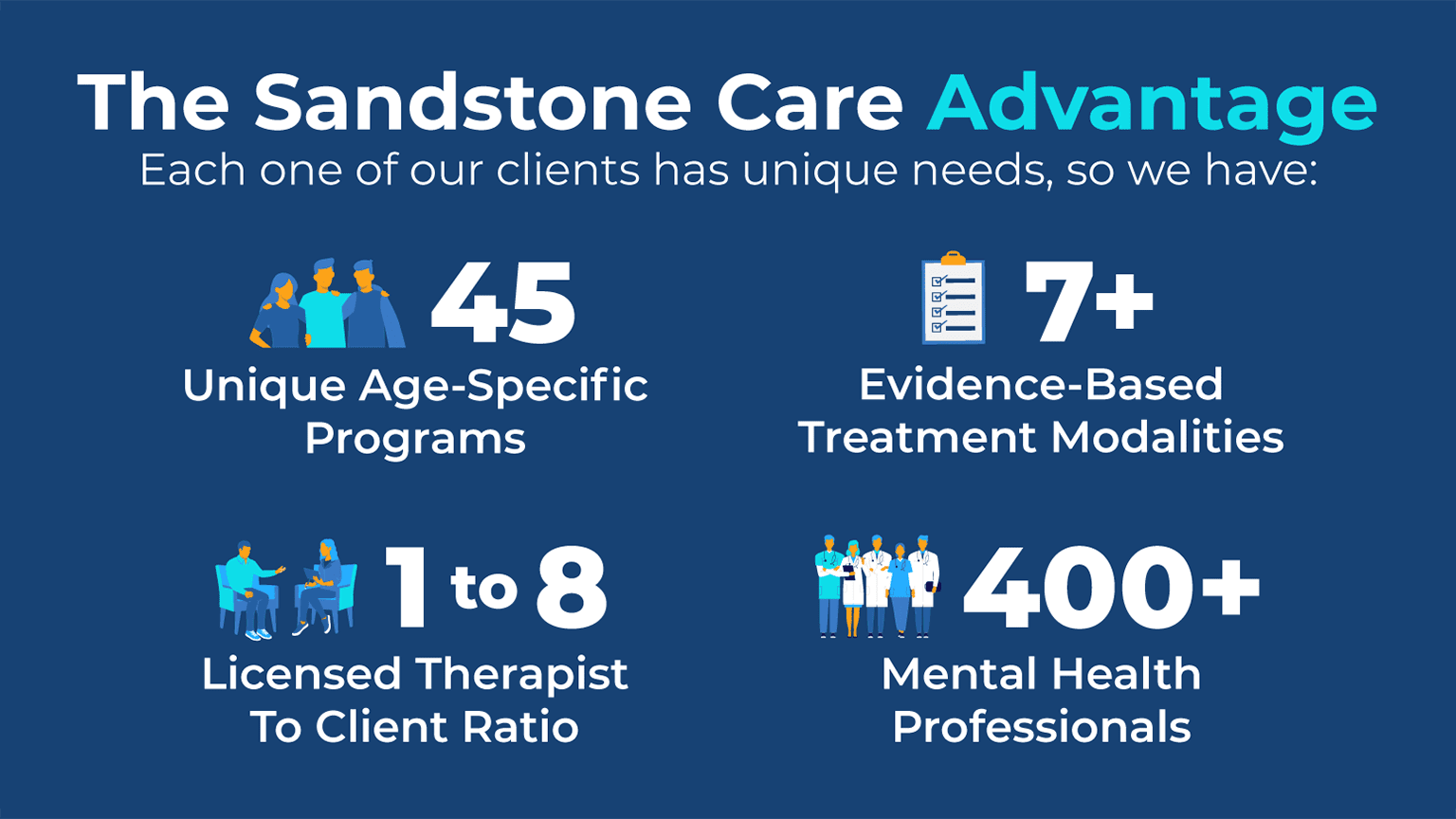Age-Specific Care
We are age-specific, not gender-specific. We focus on the unique circumstances that teens and their families face.
Residential treatment in Cascade, Colorado that helps teens overcome substance use, addiction, and mental health challenges.
(888) 850-1890 Verify Insurance




“Sandstone helped me to dig deep… and it taught me how to have a relationship with myself and relationships with others again. I was able to take the mask off, and I don’t have to put it back on.”
Watch Jesse detail how he took the leap to recover from addiction and find himself again. Discover the skills he learned during his time with Sandstone, including accountability for actions, self-sufficiency, and emotional regulation that allowed him to claim control over his life and stay sober.
With care from caring counselors and staff trained in addiction recovery, Jesse had access to the tools he needed to break the cycle of drug use and focus on his sobriety.
By tailoring treatment to the unique needs of patients like Jesse, we create an environment that fosters growth, healing, and the development of a strong support network.
At Sandstone Care, we believe in personalized and specialized care. Unlike generic treatment approaches, we understand that each individual’s circumstances are unique.
Through thorough assessments, our licensed therapists, medical professionals, and experienced staff gain a deep understanding of your background, challenges, and goals. We offer comprehensive family programming, therapy, and education at our residential treatment center in Colorado, equipping families with the necessary tools to support their loved ones’ recovery journey.
With our comprehensive continuum of care, we ensure individuals receive the right level of support at each stage of recovery. Our goal is to provide a customized experience that promotes lasting recovery and improved well-being for everyone we serve.

Marijuana has become a way to self medicate for underlying issues and it’s easy to become dependent on its use.
Studies have found that binge drinking & heavy alcohol use are problematic among young people.
Opioid misuse occurs when a person uses heroin or misuses prescription pain relievers like hydrocodone, oxycodone, and morphine.
Commonly abused stimulants include cocaine, methamphetamine, and prescription stimulants, like Ritalin, Adderall, and Concerta.
We provide an intimate clinical environment with smaller group sizes and a maximum census of 22 so that your teen gets the attention they deserve.
Teens typically stay 45-60 days and develop customized after care plans with their therapist, so that they can be set up for success as they transition home or into another program.
Cascade Canyon is nestled peacefully next to Pikes Peak Mountain, just outside of Colorado Springs, Colorado. The beautiful natural landscape will help your teen feel at peace with their healing process.
Family involvement is foundational to our program.
You will be included every step of the way so that your entire family will have the opportunity to repair relationships and grow stronger together.
OUR APPROACH
Your teen is so much more than their struggles with mental health conditions, trauma, or addictions.
Our personalized treatment plans take every aspect of your teen’s life into consideration, from their physical and mental health to their relationships and schooling. This holistic approach ensures we create lasting, positive change by treating the root cause, not just the symptoms.
Our treatment team recognizes that your teen’s brain is still developing, and they tailor every treatment plan to meet each individual’s unique social, physical, and emotional development.
My child is almost done with their program and I’ve seen a huge difference.

We are available 7 days a week to help answer any questions.
Our scientifically proven and evidence-based treatment process continues to earn national praise and foster relationships with the following:
OUR TEAM
Our staff is here to help restore lives and they don’t take that job lightly.
As a parent, it can be intimidating to trust a team with your child’s care, especially during a scary time. With licensed, highly-trained, and empathetic treatment professionals, you can feel confident that your teen is in good hands.
Each resident is assigned a multidisciplinary team, which includes a psychiatrist, individual therapist, family therapist, nurses, teacher, and recovery counselors to help them succeed.


Sandstone accepts most major insurances and it only takes minutes to verify!
We are fully HIPAA compliant and confidential with your insurance information.
We have felt included and supported and are so grateful for the care they’ve provided to our son at such a vulnerable and scary time.
The Continuum of Care
Access a full range of treatments for mental health and substance use disorders. Whether you need a safe transitional living community, inpatient care, or outpatient therapy, we have a program to help.
TEAM
We help teens and their families overcome challenges with drugs, alcohol, mental health issues, trauma, and addiction in Cascade, Colorado.


We understand taking the first step is difficult. There is no shame or guilt in asking for help or more information. We are here to support you in any way we can.